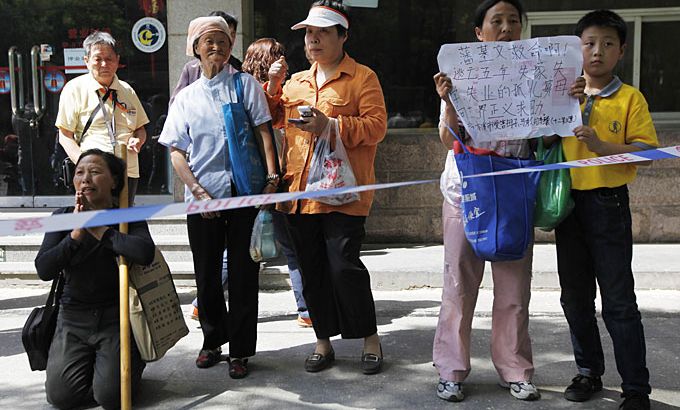
How does China define human rights?
After diplomatic debate over dissident Chen Guangcheng, we ask on what basis the US should judge China’s rights record.
Chen Guangcheng is the Chinese dissident behind a diplomatic rift between the US and China.
|
“Sometimes the local governments in China are hijacking the central government in terms of bullying some of the local dissidents … so when it comes to the national level they are also having a lot of disillusions, not expecting to handle these kinds of cases.” – Simon Shen, an associate professor of international relations |
After months of wrangling over his fate, Chen and his immediate family arrived in the US on Saturday, capping off three weeks of rollercoaster diplomacy that reached the highest levels of the Chinese government and the US White House.
But while this may be a small victory, the fight is far from over.
In a country often criticised for its human rights record, Chen’s case stood out. He is one of China’s best known activists. But it is unlikely that he will ever be allowed to go to China again.
While his arrival in the US marks the end of the diplomatic row, Chen says his battle to highlight injustices in own country is far from over.
“We should link our arms to continue our fight for goodness in the world and against injustice … so I think that our people should take up this responsibility and work towards the common good worldwide,” he said upon arriving in the US.
|
“China’s population challenges are not just the size but also the mix. We’ve now entered into the 4-2-1 Chinese family …. We have a situation where Chinese society is going to get older before it gets richer.” – David Finkelstein, a specialist on Chinese security affairs |
Now Beijing and Washington are hoping to put what could have been a tense diplomatic situation behind them.
Inside Story asks: How representative is Chen’s struggle of the human rights situation in China, and is the US’ definition of human rights universally applicable? Can Beijing and Washington put this incident behind them? And on what basis should the US judge China’s human rights record?
Joining presenter Ghida Fakhry to discuss these issues are guests: Simon Shen, an associate professor of international relations at the Hong Kong Institute of Education and Chinese University of Hong Kong; David Finkelstein, the director of China Studies at the Centre for Naval Analyses, a retired US army officer and a specialist on Chinese security affairs; and Mei Renyi, a professor at Beijing Foreign Studies University and a political analyst specialising in China-US relations and foreign policy.
|
“With a lot of people still in poverty the stress on economic and social development would be the priority, an important part of China’s human rights approach … when you are hungry, you don’t have proper housing you are talking about things beyond the expectation of ordinary people.” Mei Renyi, a political analyst specialising in China-US relations |
HOW CHINA SEES HUMAN RIGHTS:
- Many Chinese argue that their understanding of human rights is different to that of the West as a result of China’s unique history and socio-political system.
- Chinese Confucianism places a greater emphasis on harmony between the individual and society as well as the individual’s responsibilities within a society.
- As a result, greater importance is given to the rights of the community or to the collective than to the individual. That is in comparison to the West, where individual rights and personal freedoms are paramount.
- But the difference in understanding also extends to what human rights mean. The Western notion focuses on civil and political rights, whereas the Chinese tend to emphasise economic, social and cultural rights as being the most important.